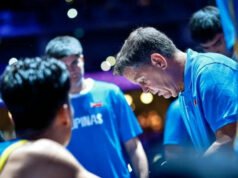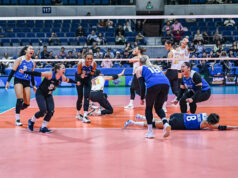 Who are you and what did you do to Novak Djokovic? It’s a question — and a fair one — that fans, avid supporters included, want to ask the player who retired from a match against Tomas Berdych the other day. Up until then, he looked well on the way to redemption, going through the first four rounds at Wimbledon with the confidence befitting a 12-time major titleholder. In the aftermath, he said he had to bow out due to an elbow injury that had been bothering him on and off for a year and a half. “There’s no way out if you don’t feel fit,” he argued. “I’m going to talk to the specialist to find a long-term solution to solve it.”
Who are you and what did you do to Novak Djokovic? It’s a question — and a fair one — that fans, avid supporters included, want to ask the player who retired from a match against Tomas Berdych the other day. Up until then, he looked well on the way to redemption, going through the first four rounds at Wimbledon with the confidence befitting a 12-time major titleholder. In the aftermath, he said he had to bow out due to an elbow injury that had been bothering him on and off for a year and a half. “There’s no way out if you don’t feel fit,” he argued. “I’m going to talk to the specialist to find a long-term solution to solve it.”
It’s easy, of course, to take Djokovic’s words at face value. After all, there had to have been a compelling reason for him to walk away from an opportunity to become “The All England Lawn Tennis Club Single Handed Champion of the World” anew. Never mind that he lost the first set via a tie-break and trailed in the second love to two; his resume is littered with remarkable comebacks owing to his never-say-die spirit. On the other hand, he has been far from his best self since completing a career Grand Slam with a triumphant 2016 French Open run; of late, it seems as if a general malaise has overcome him.
To be fair, Djokovic has tried to right the ship, even going so far as to introduce changes to his entourage. So far, though, not even the presence of tennis great Andre Agassi — whose influence he wishes would make a positive impact off the court as well — has helped on it. Throwing in the towel against Berdych? It looked out of character, not to mention irrational, considering that he hitherto held a dominating 25-to-two slate against the 11th seed, and that the latter hadn’t so much as claimed a set against him the last six times they met.
Moving forward, the hope is that Djokovic manages to resolve whatever ails him. If it’s the elbow, then fine; take care of it, maybe even give it time to heal away from competition, and then go back to the business of winning. Certainly, he can find solace in the fact that Roger Federer and Rafa Nadal, two of the three names ahead of him in major hauls, have succeeded in recovering from seeming swoons. They’re the examples he needs to plod on; his best should still be ahead of him, not referred to in the past tense.
Anthony L. Cuaycong has been writing Courtside since BusinessWorld introduced a Sports section in 1994. He is the Senior Vice-President and General Manager of Basic Energy Corp.



